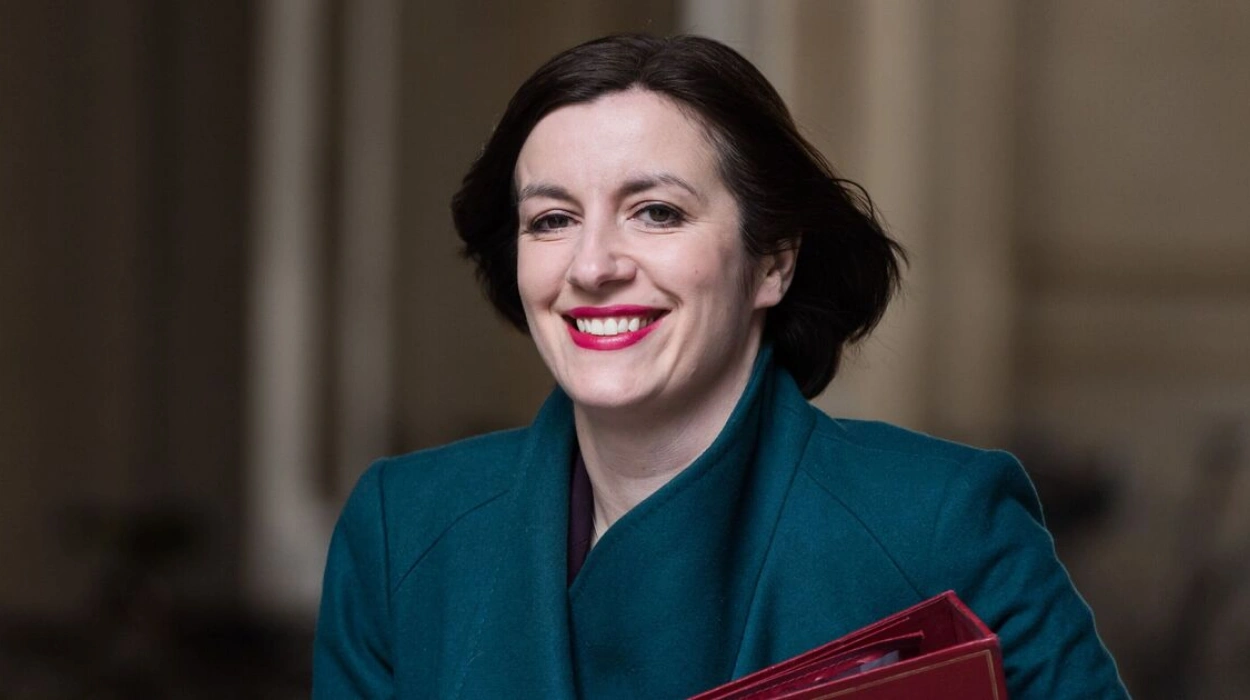UK (Parliament Politics Magazine) – Former Ofsted boss Amanda Spielman warns Education Secretary Bridget Phillipson’s curriculum changes may weaken standards to satisfy unions.
As reported by The Telegraph, Amanda Spielman claimed Bridget Phillipson is sacrificing humanities to please teaching unions.
Baroness Spielman, who stepped down from Ofsted in 2023, warned that scrapping the English Baccalaureate (EBacc) could undermine humanities and language uptake.
Michael Gove, then Tory education secretary, introduced the EBacc in 2010 to stop students choosing easier “Mickey Mouse” subjects over traditional academic ones.
Students could only achieve an EBacc score by taking English language and literature, maths, two sciences, a language, and either history or geography at GCSE level.
What did Baroness Spielman say about Bridget Phillipson’s curriculum changes and union appeal?
Baroness Spielman said attempts to boost humanities and languages drew criticism from unions, who argued creative subjects were being squeezed out.
She stated,
“The [education] sector has loathed and attacked this measure ever since it was introduced. Bridget Phillipson is once again favouring unions over voters, leaning on a sector-pleasing recommendation.”
Labour comes under fire for “watering down” education standards after last week’s national curriculum changes.
Alongside removing the EBacc, the Education Secretary announced a new compulsory citizenship course for primary schools, including lessons on climate change and spotting fake news.
Under the changes, GCSE pupils will face fewer exams in an effort to reduce stress levels.
One of Ms Phillipson’s first moves as Education Secretary was a 5.5% pay rise for teachers in 2024/25, which critics say has empowered trade unions.
The ex-Ofsted head called for grading to reflect subject difficulty to make humanities and languages more appealing.
She added,
“Look to Australia, where the same problem was addressed for university admissions by scaling student grades according to the relative difficulty of different qualifications.”
Ms Spileman continued,
“Students can choose freely, but know that they will get fewer tariff points for easier courses. This entirely removes the incentive for schools to steer their students towards the least demanding courses.”
The ex-chief criticized former Prime Minister Tony Blair’s government for giving non-GCSE subjects, like the European Computer Driving Licence, an “over-generous” weighting in performance tables.
She stated,
“The market for alternative qualifications exploded. Schools completely redesigned their offer for age 14-16 to incentivise swathes of pupils to opt for less demanding courses. It was the quick and easy way to get a school’s results up and most schools succumbed.”
The former Ofsted chief said plans to weaken Progress 8 could benefit creative and practical subjects, but would “almost certainly” reduce take-up of foreign language study.
Baroness Spileman added,
“GCSE foreign languages could all but disappear from state secondary schools in the next decade. This will please the sector and arts lobbies but in a way that doesn’t fit with most parents’ preferences.”
What did Laura Trott say about Bridget Phillipson’s reforms and union influence?
Shadow Education Secretary Laura Trott said the proposed changes had a “suspicious whiff of trade union influence.”
She added,
“As well as watering down standards, Labour are weakening accountability. This is a two-pronged disaster.”
What did the latest More In Common survey reveal about science, EBacc, and financial literacy?
A recent More In Common poll shows 66% of respondents believe students should continue EBacc subjects until age 16, despite less time for other courses.
The survey revealed that among over 2,000 respondents, support for EBacc was strongest among older people, compared with 58% among millennials.
Around 50% of Green Party supporters and 48% of Labour voters consider the sciences the most important subjects in education.
The poll revealed that Conservative, Liberal Democrat, and Reform UK voters ranked financial literacy as the most important subject.
How many unions supported Bridget Phillipson during her leadership tenure?
Bridget Phillipson received the support of six trade unions during her deputy leadership contest. Among these unions were two of the largest in the UK, Unison and GMB.
These unions, including Community, National Union of Mineworkers (NUM), Usdaw, and Musicians’ Union, also endorsed Bridget Phillipson.
Ms Phillipson received 73,536 votes in the 2025 Labour deputy leadership contest. Lucy Powell won the contest with 87,407 votes, securing 54.3% of the vote compared to Phillipson’s 45.7%


